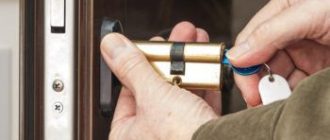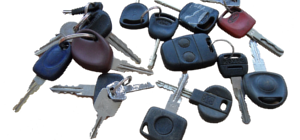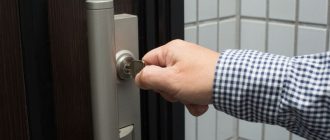
Why Can’t I Get My Key Duplicated
Getting a key duplicated seems like a simple task, but there are often times when it just can’t be done. So why can’t you get your key duplicated? Understanding the limitations behind key duplication can help shed light on this frustrating issue.
One of the main reasons why you may not be able to get your key duplicated is due to security measures. Many keys are designed with advanced security features, such as laser-cut grooves or transponder chips, to prevent unauthorized duplication. These features make it nearly impossible for anyone without the proper equipment or authorization to recreate the key.
Additionally, some keys are unique and can only be duplicated by the original manufacturer or licensed locksmiths. This is often the case for keys that are part of a restricted or patented system. These keys are specifically designed to be difficult to duplicate in order to maintain strict control over who has access to certain areas or resources.
In some cases, the limitation on key duplication is simply a matter of convenience. Some retailers or locksmiths may not have the necessary resources or equipment to duplicate certain types of keys. This can be especially true for older or rare keys that require specific tools or techniques that are no longer widely available.
Understanding the limitations behind key duplication can help manage expectations and avoid frustration. It’s important to remember that these limitations exist for a reason – to protect against unauthorized access and maintain security. If you find yourself unable to duplicate a key, it may be worth reaching out to a professional locksmith who specializes in challenging key duplication.
The Importance of Key Duplication
Many individuals wonder why they can’t get their key duplicated, especially when it seems like such a simple task. However, there are important reasons why key duplication may not always be possible.
One of the main reasons why you may not be able to get your key duplicated is due to security reasons. Locksmiths and key duplication services are often committed to upholding the highest standards of security and ensuring that keys are not duplicated without proper authorization. This helps protect individuals from potential theft or unauthorized access to their property.
Additionally, certain types of keys, such as high-security keys or restricted keys, may come with measures to prevent easy duplication. These keys are designed with extra security features that make it more difficult for unauthorized individuals to make copies. This is particularly important for keys used in sensitive areas, such as government buildings or secure facilities.
It’s important to recognize that key duplication restrictions are in place to protect individuals and their property. While it may be frustrating when you can’t get a key duplicated quickly, it’s crucial to remember that these limitations exist for the greater good of everyone’s safety and security. Instead of trying to bypass these restrictions, it’s recommended to work with a professional locksmith who can provide proper authorization and ensure that your key duplication needs are met in a secure and reliable manner.
The Common Reasons Behind Key Duplication Difficulties
When it comes to getting a key duplicated, it can be frustrating when you encounter difficulties. There are a few common reasons why you can’t get your key duplicated:
1. Restricted Keys: Some keys, particularly those used for high-security locks or restricted access areas, have patented designs that prevent unauthorized duplication. These keys often have unique shapes, specialized keyways, or embedded security features that make them difficult or impossible to duplicate without proper authorization.
2. Unavailable Equipment: Certain types of keys require specialized equipment to duplicate, such as laser cut or dimple keys. Not all locksmiths or key duplication services have the necessary tools or expertise to duplicate these types of keys.
3. Key Material: The material used to make the key can also affect duplicability. For example, keys made of hard metals like titanium or hardened steel may be more difficult to duplicate compared to standard brass or nickel keys. The hardness or density of the material may require specialized equipment or techniques for successful duplication.
4. Age and Wear: Over time, keys can become worn or damaged, making them challenging to duplicate accurately. The wear and tear may have altered the key’s original shape or compromised its functionality, making it difficult to create an accurate duplicate.
5. Specialty Keyways: Some locks feature unique keyways or keyhole shapes that are specific to a particular lock brand or model. If your key has a specialized keyway design, it may be challenging to find a key duplication service that has the correct blanks or equipment to create a duplicate.
It’s essential to understand these common reasons behind key duplication difficulties to manage your expectations when trying to duplicate a key. Consulting with a professional locksmith or key duplication service can help determine the feasibility of duplicating your key and explore alternative solutions if necessary.
The Role of Key Cutting Machines
Key cutting machines play a crucial role in the process of duplicating a key. When you can’t get your key duplicated, it’s essential to understand the importance of these machines.
Key cutting machines are specifically designed to accurately replicate a key by cutting it to the exact specifications of the original. They use advanced technology to ensure precision and accuracy, allowing locksmiths and key cutting services to create duplicate keys that function just like the original.
These machines are equipped with various tools and features that enable them to cut different types of keys, including traditional metal keys, high-security keys, and even transponder keys. The process involves carefully aligning the key blank with the cutting mechanism and then cutting it to match the grooves and ridges of the original key.
However, it’s important to note that not all keys can be duplicated due to certain limitations. Modern high-security keys, for example, often have complex designs and unique security features that make them difficult to replicate. Additionally, some keys may require specialized equipment or the permission of the key’s manufacturer to duplicate.
The key cutting machine itself is just one part of the key duplication process. The expertise and skills of the locksmith or key cutting service also play a significant role in ensuring a successful duplication. They must have a good understanding of different key types, key cutting techniques, and the specific requirements for duplicating each key accurately.
So, the next time you’re wondering why you can’t get your key duplicated, remember that key cutting machines play a crucial role in the process. Understanding their importance can help you appreciate the complexity involved in key duplication and why there may be limitations in duplicating certain types of keys.
The Challenges with High-Security Keys
High-security keys are designed with advanced features and technology to provide enhanced protection against unauthorized duplication. These keys often have intricate designs and complex keyway configurations, making it difficult to duplicate them.
One of the main reasons why high-security keys cannot be easily duplicated is their unique and patented keyway designs. These designs are exclusive to specific key manufacturers and are not readily available in the market. As a result, locksmiths and key duplication services do not have access to the necessary equipment to reproduce these keys.
In addition to unique keyway designs, high-security keys often incorporate additional security features such as specialized grooves, dimples, or track patterns. These features further complicate the process of duplicating the keys as they require specialized equipment and knowledge to accurately reproduce.
Furthermore, high-security keys are often made of stronger and more durable materials compared to standard keys. They may use hardened steel, titanium, or other reinforced materials, making them resistant to common methods of key duplication.
Manufacturers of high-security keys also employ strict control measures to restrict the distribution of key blanks and cutting machinery. They typically require customers to provide proof of ownership or authorization before they can obtain a duplicate key. This helps prevent unauthorized duplication and enhances the overall security of the key system.
Overall, the challenges with duplicating high-security keys stem from their unique designs, additional security features, and restricted distribution. While this may inconvenience individuals who need duplicates, it ultimately ensures the integrity and reliability of high-security systems.
The Limitations of Traditional Key Duplication Methods
When it comes to duplicating a key, many people often face challenges and wonder why they can’t simply get a copy made. The truth is that the process of key duplication is not as simple as it may seem. Traditional key duplication methods have their limitations, and understanding these limitations can help shed light on why getting a key duplicated can sometimes be a frustrating experience.
One of the main reasons why you may not be able to get your key duplicated is due to the type of key you have. Certain types of keys, such as high-security keys or keys with intricate designs, require special equipment and expertise to duplicate. Traditional key duplication methods may not be able to accurately replicate these types of keys, leading to unsuccessful attempts.
Another limitation of traditional key duplication methods is the availability of key blanks. A key blank is a blank key that is used as a template to create a duplicate key. While key blanks for common types of keys are readily available, finding the right key blank for a less common or older type of key can be a challenge. Without the appropriate key blank, key duplication becomes impossible.
Furthermore, traditional key duplication methods may also be limited by the condition of the original key. If the original key is worn out or damaged, it may not be possible to create an accurate duplicate. In such cases, it may be necessary to replace the entire lock or seek alternative solutions.
Understanding the limitations of traditional key duplication methods can help manage expectations when attempting to get a key duplicated. If you have a key that falls outside the scope of what traditional methods can accommodate, it may be worth exploring other options such as seeking the services of a professional locksmith or considering alternative security solutions.
The Complexities of Transponder Keys
Transponder keys use a built-in microchip that emits a unique signal to the car’s immobilizer system. This signal is then verified by the car’s computer before it allows the engine to start. Since the microchip and the car’s computer are paired together, duplicating a transponder key requires special knowledge and equipment.
In the past, duplicating a transponder key was a difficult and expensive process that only dealerships and specialized locksmiths could handle. However, as technology has advanced, there are now some locksmiths who have the expertise and equipment to duplicate transponder keys. These locksmiths use specialized key programming tools to clone the original key’s code onto a new key.
It’s important to note that not all locksmiths are able to duplicate transponder keys, and attempting to duplicate a transponder key without the proper equipment and knowledge can result in damaging the original key or even the car’s immobilizer system. Therefore, it’s always recommended to seek the services of a professional locksmith who specializes in transponder keys if you need a duplicate.
So, if you’re wondering why you can’t get your transponder key duplicated at just any key-cutting kiosk or hardware store, now you know the complexities involved. Transponder keys require specialized equipment and knowledge to duplicate, so it’s best to rely on professionals who have the expertise to get the job done right.
The Potential Risks of Unauthorized Key Duplication
Duplicated keys pose a significant risk when they fall into the wrong hands. If you can’t get your key duplicated, it’s important to understand why this limitation exists, as it is intended to protect your security and prevent unauthorized access to your property.
Unauthorized key duplication can result in various potential risks. One of the main concerns is the ease with which someone can gain access to your home or office without your knowledge or consent. This puts your personal safety, as well as the security of your belongings, at risk.
When a key is duplicated without proper authorization, it can end up in the possession of individuals who may have malicious intent. They could use the duplicated key to break into your property, steal valuable items, and potentially cause damage.
In addition to the physical risks, unauthorized key duplication can also lead to security breaches. If your key is duplicated without your knowledge, someone may be able to gain access to sensitive information or confidential areas that are supposed to be restricted. This could have serious consequences, especially if you’re dealing with classified documents or business assets.
Authenticating key duplication requests helps prevent these risks by ensuring that only authorized individuals can obtain duplicate copies of keys. Locksmiths and key duplication services have procedures in place to verify the identity and ownership of the key before providing a duplicate. This adds an extra layer of security and helps protect against unauthorized access.
Understanding the limitations and risks associated with unauthorized key duplication highlights the importance of following proper procedures to obtain duplicate keys. It’s crucial to use trustworthy and reputable key duplication services to help maintain the security of your property and prevent any potential harm or unauthorized access.
The Advancements in Key Duplication Technology
In recent years, there have been significant advancements in key duplication technology, making it easier and more convenient for individuals to get their keys duplicated. Understanding why you can’t get your key duplicated in the past is crucial in appreciating these advancements.
One of the main reasons why people couldn’t get their keys duplicated in the past was due to the complexity of the key itself. Traditional keys often had intricate designs and unique shapes that made them difficult to duplicate accurately. Locksmiths had to rely on manual techniques and precise measurements to replicate these keys, which was a time-consuming and error-prone process.
However, with the advancements in key duplication technology, this issue has been largely resolved. Automated key cutting machines have made it possible to create exact duplicates of even the most complex keys. These machines use advanced scanning technology to capture the precise shape and grooves of a key, ensuring an accurate duplication every time.
Furthermore, advancements in key duplication technology have also addressed the issue of key compatibility. In the past, some keys were designed to be unique to a specific lock or brand, making it challenging to find a locksmith who could duplicate them. Today, key cutting machines can replicate keys for a wide range of locks, including those from different manufacturers.
Another significant advancement is the introduction of digital key duplication technology. This technology allows keys to be stored digitally and duplicated using a computer program or a smartphone app. With just a few clicks or taps, individuals can easily get their keys duplicated without the need for physical key cutting machines.
Overall, the advancements in key duplication technology have revolutionized the process of getting keys duplicated. With these new technologies, duplicating a key has become quick, accurate, and widely accessible, eliminating the previous barriers that made it challenging to get a key duplicated.
The Importance of Professional Locksmith Services
When it comes to the security of your home or business, having a reliable and trustworthy locksmith is crucial. Many people might think that duplicating a key is something they can easily do on their own, but there are limitations to consider. This is why it is important to seek the services of a professional locksmith.
One of the main reasons why individuals can’t duplicate their keys on their own is due to the complex technology used in modern keys. Many keys today have specialized features, such as transponders or electronic chips, which require specific equipment and expertise to duplicate. Professional locksmiths have the knowledge and tools necessary to accurately duplicate these types of keys.
Additionally, professional locksmiths have the necessary expertise to ensure the duplication process is done correctly. They can assess the condition of the original key and make any necessary adjustments or repairs before duplicating it. This helps ensure that the duplicated key will work flawlessly and not cause any issues, such as getting stuck or breaking in the lock.
Furthermore, professional locksmiths are trained to handle a wide range of key types and locking systems. Whether it’s a traditional pin-and-tumbler lock or a more advanced electronic lock, professional locksmiths have the skills and experience to work with various security systems. They can provide the necessary guidance and advice in choosing the right type of key duplication method for your specific lock.
The importance of professional locksmith services goes beyond key duplication. Locksmiths can also assist with other security needs, such as lock installation, repair, and maintenance. They are equipped to handle emergency situations, such as being locked out of your home or car, and can provide quick and efficient solutions.
In conclusion, when it comes to key duplication and overall security, relying on professional locksmith services is essential. Their knowledge, expertise, and specialized tools make them the best choice for accurately duplicating keys, ensuring the security of your property, and providing peace of mind.
The Legal Considerations of Key Duplication
When it comes to getting my key duplicated, there are often legal considerations that need to be taken into account. It’s not as simple as walking into a hardware store and asking for a duplicate. There are reasons why I may not be able to get my key duplicated, and understanding the limitations can help me avoid any potential legal issues.
One of the main reasons why I may not be able to get my key duplicated is due to intellectual property rights. Some keys, especially those used for high-security purposes, are patented and protected by law. This means that duplicating such a key without the permission of the owner can be considered a violation of intellectual property rights. Hardware stores are often cautious about duplicating these types of keys to avoid any legal repercussions.
Another legal consideration is the issue of unauthorized key duplication. Key duplication is a security concern, as it can potentially allow unauthorized individuals to gain access to a property. To prevent this, some companies or individuals may have restrictions in place that prevent their keys from being duplicated without proper authorization. This is often the case for keys used in commercial properties or high-security areas.
In addition to intellectual property rights and security concerns, there may also be legal restrictions on key duplication for certain types of keys. For example, some states have laws that regulate the duplication of keys that are specifically used for vehicles. These laws are in place to prevent car theft and unauthorized access to vehicles. It’s important to be aware of any legal restrictions that may apply to key duplication in your area.
| Intellectual property rights |
| Unauthorized key duplication |
| Legal restrictions on key duplication |
The Impact of Key Duplication on Insurance Coverage
Many people wonder why they can’t get their key duplicated and how it affects their insurance coverage. The answer to this lies in the security measures put in place by insurance companies to protect policyholders against theft and unauthorized access to their property.
When you can’t get your key duplicated, it means that only authorized individuals have access to copies of your key. This helps reduce the risk of someone obtaining a copy of your key without your knowledge or permission.
Insurance companies view key duplication as a potential security risk. If anyone could easily duplicate keys, it would increase the chances of unauthorized access, theft, and potential damage to your property. This higher risk would result in higher insurance premiums or even a denial of coverage altogether.
Protecting your property and ensuring the safety of your belongings is a priority for both insurance companies and policyholders. By limiting key duplication, insurance companies can better control access to your property and reduce the likelihood of theft or damage.
While it may be frustrating when you can’t get your key duplicated, understanding the reasoning behind it can help you appreciate the importance of this security measure. It serves as a safeguard for both you and your insurance coverage.
So the next time you wonder why you can’t get your key duplicated, remember that it’s a precautionary measure to protect your property and maintain the integrity of your insurance coverage.
The Future of Key Duplication
Many people wonder why they can’t get their key duplicated easily. The answer to this question lies in the complexities of key technologies and security measures that are in place.
However, the future of key duplication looks promising. With advancements in technology, there are emerging solutions that aim to simplify the process and make it more accessible to everyone.
One such solution involves the use of digital keys. These keys can be easily duplicated using specialized software and hardware. Digital keys store all the necessary information electronically, allowing for quick and accurate duplication.
Another exciting development is the rise of 3D printing technology. 3D printers have the potential to revolutionize key duplication by creating exact replicas of keys with just a few clicks. This technology eliminates the need for traditional key cutting machines and reduces the chances of human error in the process.
Additionally, there are efforts to create centralized key databases that store information about all types of keys. This database would allow authorized locksmiths and key duplication services to access key specifications and replicate them accurately. This would make the duplication process easier and more reliable.
While these advancements show promise, it is important to consider the challenges that come with them. Ensuring the security and integrity of key duplication technologies is crucial to prevent unauthorized access and duplication.
| Quick and accurate duplication. | Potential security risks. |
| Reduced chances of human error. | Need for secure authentication measures. |
| Simplified process. | Cost of implementing new technologies. |
In conclusion, the future of key duplication looks promising with the advancements in digital keys, 3D printing, and centralized key databases. These technologies have the potential to simplify the process and make it more accessible. However, it is crucial to ensure security measures are in place to protect against unauthorized access.
The Benefits of Key Duplication for Business Owners
There are many reasons why business owners should consider key duplication. One of the main advantages is that it provides a convenient solution for accessing their premises. When you can’t get your key duplicated, it can be a hassle to have to rely on a single key. This can be especially problematic if the key is lost or accidentally locked inside the building.
By getting your key duplicated, you have a backup option in case of emergencies. It allows you to have multiple keys for different employees or managers, ensuring that there is always someone with access to the premises. This can be particularly useful if there is a need for round-the-clock access or if employees work in shifts.
In addition to convenience, key duplication also offers an extra layer of security. With duplicate keys, business owners have better control over who can access their premises. They can easily revoke access by simply collecting the duplicated keys. This saves the hassle of having to change locks or deal with lost keys.
Moreover, having duplicate keys can streamline daily operations. For instance, if business owners need to grant temporary access to contractors, vendors, or visitors, duplicating a key can be a quick and efficient solution. This eliminates the need for someone to constantly monitor and escort visitors, allowing employees to focus on their tasks.
Overall, key duplication provides business owners with the peace of mind that comes with having a reliable backup solution for accessing their premises. It offers convenience, enhances security, and streamlines daily operations. Considering the benefits it brings, it is clear why business owners should prioritize getting their keys duplicated.
The Role of Key Duplication in Personal Security
For many people, the ability to get their key duplicated is a convenient and practical solution. The process of duplicating a key allows individuals to have multiple copies of a key, providing them with a sense of security and peace of mind. However, there are certain limitations that prevent individuals from easily duplicating their keys.
Firstly, key duplication is not always possible due to the complexity of key designs. Many modern keys come with intricate patterns, specialized grooves, and electronic components that cannot be easily replicated. These advanced security features are specifically designed to prevent unauthorized duplication, ensuring that only trusted sources can duplicate the key.
Secondly, key duplication may be restricted for security reasons. In order to protect individuals from the potential risk of unauthorized access, certain types of keys may only be duplicated with proper authorization. This is especially true for high-security keys, such as those used for cars, safes, and commercial buildings. The restricted duplication process ensures that only authorized individuals have the ability to duplicate these keys.
Additionally, some keys may require specialized equipment or expertise to duplicate. For example, certain keys may need to be replicated using specific key cutting machines or specialized software. These requirements make it difficult for individuals to duplicate their keys without the necessary tools and knowledge.
Overall, while key duplication plays a crucial role in personal security by providing individuals with access to multiple copies of their keys, there are limitations that prevent easy duplication. It is important for individuals to understand and respect these limitations in order to maintain the integrity and security of their keys.
Q&A:
Why can’t I just go to a regular locksmith to get my key duplicated?
Duplicating certain types of keys, such as high-security keys or keys with electronic components, requires specialized equipment and certification that regular locksmiths may not have.
Why are some keys labeled “Do Not Duplicate”?
Keys that are labeled “Do Not Duplicate” are usually restricted for security reasons. They may be used for high-security locks or sensitive areas, and the owner wants to ensure that unauthorized copies are not made.
Can I get a duplicate key made if I have lost the original key?
If you have lost the original key, it may still be possible to get a duplicate made, but it will depend on the type of key and lock. In some cases, you may need to replace the entire lock or hire a professional locksmith to gain access.
Why can’t I duplicate a key myself using a key-cutting machine?
Duplicating a key requires accurate measurements and cutting techniques that can be difficult to achieve without proper training and equipment. Key-cutting machines are designed to duplicate keys, but they still require skill and expertise to use effectively.
Is it possible to duplicate a key with an electronic chip?
Duplicating a key with an electronic chip, known as a transponder key, is more complex than duplicating a regular key. It requires specialized equipment and programming to ensure that the chip is properly programmed and functions with the corresponding lock. This task is typically done by authorized dealers or locksmiths.
Why can’t I get my key duplicated?
There are several reasons why you may not be able to get your key duplicated. One common reason is that the key may have a unique design or be a specialized type that requires special equipment to duplicate. Additionally, some keys may have patented technology that prevents unauthorized duplication. Another possibility is that the key may require authorization from the owner or a locksmith to be duplicated to prevent unauthorized access. Finally, if you have lost your key, you may need to provide proof of ownership or identification before a duplicate can be made.
What should I do if I can’t get my key duplicated?
If you are unable to get your key duplicated, there are a few steps you can take. First, check with the manufacturer of the key or the locksmith to see if there are any restrictions on duplication. They may be able to provide you with alternative options or suggest a solution. If the key is lost, you may need to contact a locksmith to have the lock re-keyed or replaced. It is also a good idea to keep a spare key in a safe place to avoid situations where you are unable to get a key duplicated.






